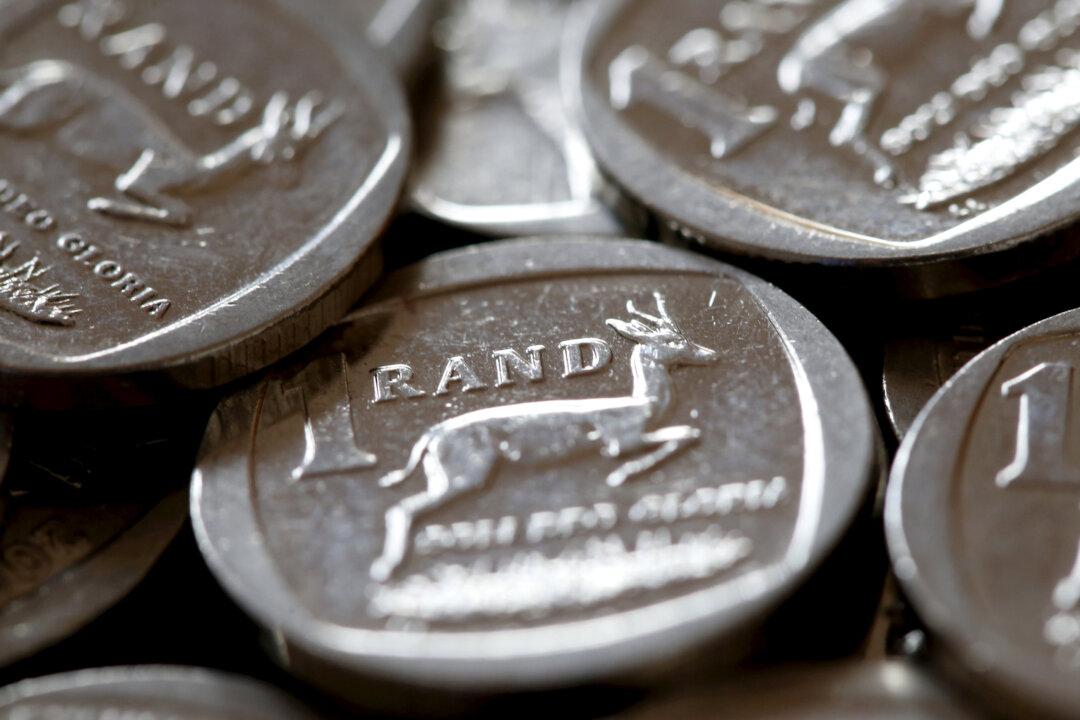JOHANNESBURG—South Africa’s rand will lose half of the 7 percent gains made against the U.S. dollar since the start of the year over the next 12 months, pressured by fiscal constraints and weak growth, a Reuters poll found on Feb. 6.
The rand has topped emerging market currencies since the turn of the year, buoyed by external developments such as a potentially more “patient” Federal Reserve in raising interest rates and a revitalized mood in U.S.-China trade talks.





